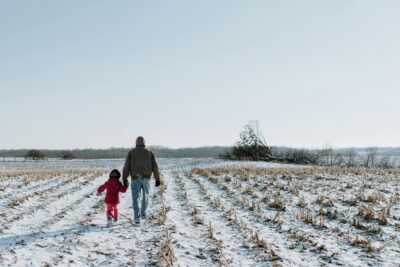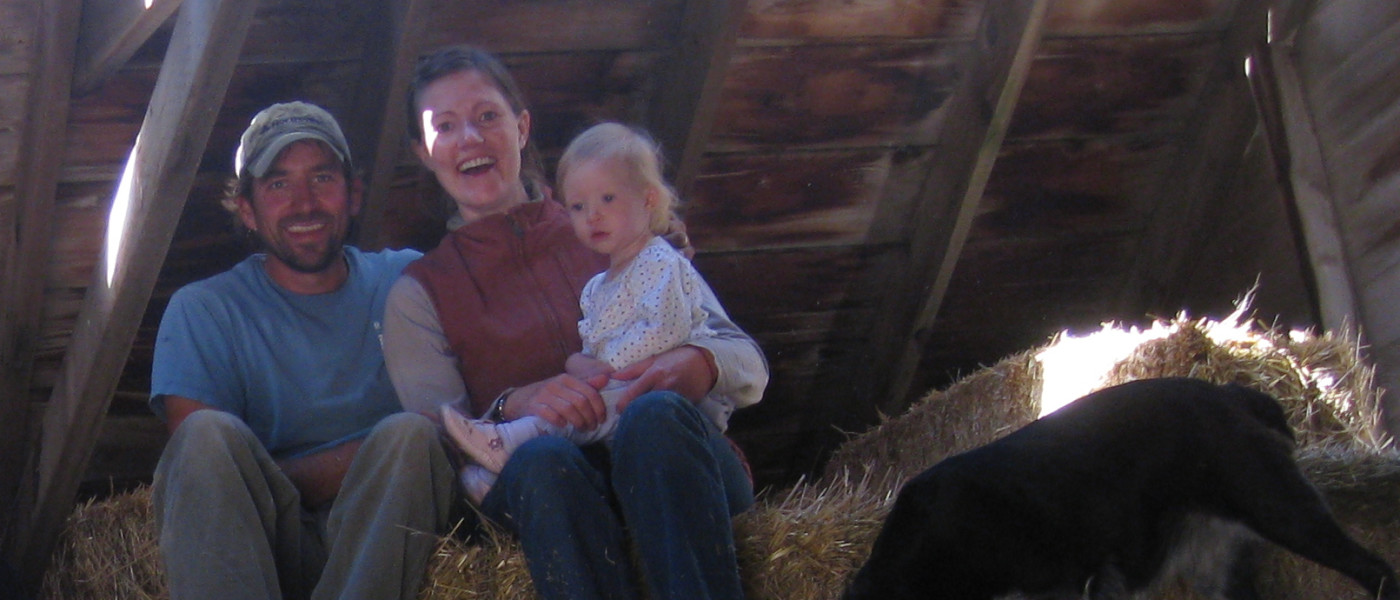Conrad, MT
Courtney and Jacob Cowgill run Prairie Heritage Farm, a diversified operation in central Montana. They raise heritage, pastured turkeys and grow a variety of organic vegetables, but their real passion is for their ancient grains. They hope to prove that small-scale farming is a relevant and effective way to make a living in modern agriculture.
During the ‘80s farm crisis and a subsequent harsh drought, Courtney Cowgill watched her parents’ farm slowly transition from a thriving, diversified farm to a commodity farm struggling to stay afloat. The year Courtney graduated from college, her parents had to give up the farm. “After seeing all that, I did not want to farm at all,” Courtney says.
Courtney went to college to study journalism and after 10 years away from Montana, she moved back to work at a magazine covering rural depopulation and farm policy. Jacob also moved home around this time to complete his master’s degree, studying rural communities and rural flight. Courtney says, “We were both lamenting the loss of young people in these communities and we were researching and writing about these issues. Then we realized that we were part of the problem.”
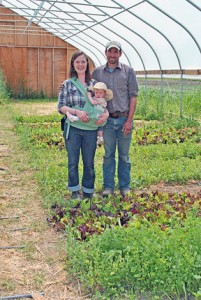 The couple married and soon after Jacob began working with another farmer, experimenting with how to take a small acreage and make it viable for a family to live on and farm again. About three years ago, the Cowgills began leasing a 15-acre plot, raising pastured turkeys and organic vegetables and grains.
The couple married and soon after Jacob began working with another farmer, experimenting with how to take a small acreage and make it viable for a family to live on and farm again. About three years ago, the Cowgills began leasing a 15-acre plot, raising pastured turkeys and organic vegetables and grains.
The family has now established a 40-member vegetable CSA (Community Supported Agriculture)—the only one within a 150-mile radius. Courtney explains that while CSAs have become fairly prevalent in more heavily populated areas, they are ironically more difficult to come by as you move further into farm territory.
“There are all these [CSAs] happening in urban agriculture, and we thought, ‘Rural places are where agriculture was born, so we might as well give it a shot and see if these kinds of things can happen in rural Montana too.’”
With the success of their vegetable CSA, they are also working on growing their grain and beans CSA that began last year. “We want to get people thinking locally and regionally about their staples too. We don’t want to do vegetables forever. It’s these grains that sort of captured our fancy.”
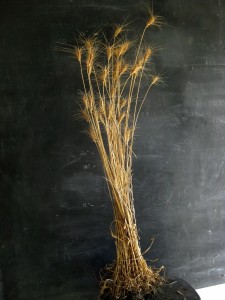 Some of the grains that Prairie Heritage CSA shareholders might receive include the regular suspects like beans, lentils, oats, barley and rye, but also less prevalent varieties such as Painted Mountain Indian Corn, a heritage variety of spring wheat, and ancient grains such as emmer, spelt and kamut.
Some of the grains that Prairie Heritage CSA shareholders might receive include the regular suspects like beans, lentils, oats, barley and rye, but also less prevalent varieties such as Painted Mountain Indian Corn, a heritage variety of spring wheat, and ancient grains such as emmer, spelt and kamut.
The Cowgills have good reason to be so fond of their grains. Jacob started with a tiny envelope of seeds for each ancient or heritage variety, and he has been expanding their supply by hand-harvesting the seeds after each growing season. Courtney says it has been exciting to preserve old genetics by putting the seeds into production.
One challenge that the small scale of their grain production has presented is finding a means to clean the grains. Most companies in the area won’t deal with cleaning small batches of grains like theirs. Courtney says that the infrastructure for small grain operations has really disappeared over the last 50 years, presenting an interesting challenge for non-commodity farms like hers. Luckily, the family recently got a grant from Montana’s Growth Through Agriculture Program to purchase some grain cleaning equipment to do the work on-site.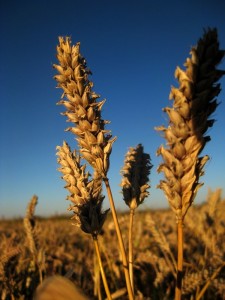
“The consolidation of the seed industry is bad for us just like it’s bad for the seed industry in the United States,” Courtney says. “Our seed supply is our food supply … If we don’t have localized seed systems for everything we eat, we’re going to be in a lot of trouble.”
The consolidation stems largely from genetically modified seed companies that have put patents on the seeds they engineer, preventing farmers who plant those seeds from cleaning and saving them for the next season.
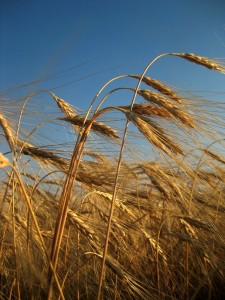 The Cowgills’ farm is surrounded mostly by commodity wheat farms—they describe themselves as an “island of diversification.” Thus far, wheat hasn’t been as central of a focus in genetic engineering as corn or soy, but the family remains worried that genetically engineered seeds could put their organic crops in jeopardy very soon. “It’s terrifying,” says Courtney. “GE wheat is on the horizon and Monsanto is getting into vegetables. It will be even more of an issue for us and consumers in the near future.”
The Cowgills’ farm is surrounded mostly by commodity wheat farms—they describe themselves as an “island of diversification.” Thus far, wheat hasn’t been as central of a focus in genetic engineering as corn or soy, but the family remains worried that genetically engineered seeds could put their organic crops in jeopardy very soon. “It’s terrifying,” says Courtney. “GE wheat is on the horizon and Monsanto is getting into vegetables. It will be even more of an issue for us and consumers in the near future.”
Courtney believes that in order for farmers and consumers to have a choice of what to grow and eat, labels for genetically engineered foods are a “no-brainer.” “As a mom, I want to know everything, good or bad, that goes into my child’s system,” Courtney says. “It just makes sense to label it.”
Courtney says that a main reason that she returned home to Montana and got into farming was because she wanted her children to grow up the way she did—learning from her experiences on a diversified farm.
“Some people react to us like we’re something new, but small scale diversification is as old as agriculture. I’m actually farming like my grandmother did,” she says.
And Courtney and Jacob’s daughter, Willa, will undoubtedly learn about everything the farm has to offer soon enough— before she could walk, she was carried around in a backpack as they worked, and now she’s getting up close and personal with the crops on her own two feet. “She’s just a very dirty kid,” says Courtney with a laugh. “We want her to grow up on a farm and for her generation to be able to grow up in a rural community.”
